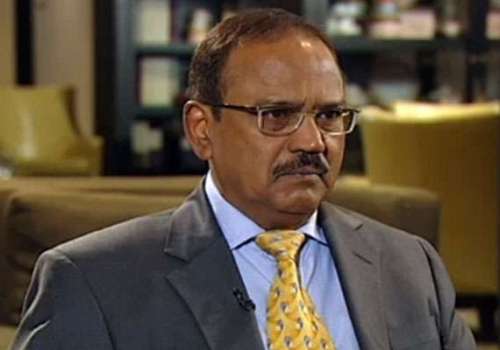
National Security Advisor Ajit Doval, in his very first public interaction, said the government is “closely monitoring” the activities of the Al Qaeda and jihadist Islamic State group and if it finds the relationship between the two evolving to harm India then the government would take a “very, very serious view” of it.
In answer to a query on the threat perception from the two groups during his address at the Munich Security Conference meet here, Doval said there is nothing like a big or small threat. “We consider terrorism as a threat, and it is not on the basis of geographies or groups, but on the basis of capabilities and targets.”
He said “any group that we have information on, that they have the intentions and capability to strike against us will be the biggest target. Right now we are closely seeing and monitoring them (the two groups), we have to watch to see if the relationship evolves and if they are targeting us, then we will have to take a very, very serious view”.
To a question on China, during the meet held in partnership with the Observer Research Foundation (ORF), Doval said India considers “China as a very important neighbour” and a country with which India has had good relations for many centuries, barring “some bad experience in 1962 and the water dispute”.
He said both sides will find a solution to their bilateral problems through talks and both have found a “lot of space in economic cooperation” despite many problems that are common.
In a warning, he added “but while we want every opportunity to develop relations to the best extent, our territorial interests and sovereignty are totally inalienable.”
Doval said there would be “no compromise at the cost of national security”.
He added that they have found “positive signals from the Chinese interlocutors and we feel we should sit together and resolve our boundary dispute amicably and as early as possible”.
He said there should be a relationship of peace, stability and accommodation with China and that we have to engage them rather than follow a path of exclusive isolation from each other.
During his talk, Doval also called for a collective global convergence on terrorism and also said that India considers strong democracy as the best tool to foster security both within the country and in the region.
“There is need for global convergence, automated systems and institutionalized mechanism and meaningful partnership” to combat the threat of terrorism, he said.
He said that post the 9/11 attacks when the war on terror was launched, terrorism has become “much more intense and expanded, engulfed new areas, and the type of capability it has acquired has become mind boggling”.
He said in the past 13 years while individual countries have honed their independent anti-terror mechanisms and networks, at the international level countries have failed to jointly act against terror, except to hold conferences.
Since 2001 there had been an idea to have a comprehensive UN convention on terrorism but the failure to have one was due to “one reason; people could not define terrorism”, he said, adding that at the Kuala Lumpur conference it was almost accepted, but for one point.
“Some country wanted, Pakistan wanted that, the causative factor, freedom fighters, should not be treated as terrorists.”
He said because of Pakistan’s objection the adoption of the UN convention on terrorism was held back.
He called for a UN convention on terrorism, adding “And should something happen, there should be a collective response, a systemic convergence.”
Speaking of cyber terrorism, he suggested that the conventional method of extradition and interrogation with regard to cyber terrorists was a “very cumbersome process”. Since cyber crime is a fast moving process it needs to be responded to in 24 hours.
On maritime security, Doval said the Indian Ocean is an area of peace and development and the world has to “be extremely vigilant to see that balances are not disrupted” and wherever there are conflicts global agreements should determine the solution.
He said the Narendra Modi government feels that democracy is one of the most powerful tools in dealing with security problems.
“And if we have democracy, a strong democracy in the country and similar in the region that would be one of the very surest symbols of India’s security,” he said.
On the government’s neighbourhood policy, he said the government’s aim is for development of the region, and to see “whether the fruits of India’s growth and development would have a spillover effect” and also to assure neighbours that India’s growth “is not a threat or to undermine statehood but to enrich and provide new opportunities”.
Doval said India wants to resolve any conflict through talks and has made a beginning in the direction.
“But at the same time India would like to have an effective deterrence capability that is credible, that is seen and known by people; and that India cannot be taken for granted, and that its legitimate rights cannot be trampled upon, and that it becomes an instrument for stability in the region rather than a cause for conflict,” he said.